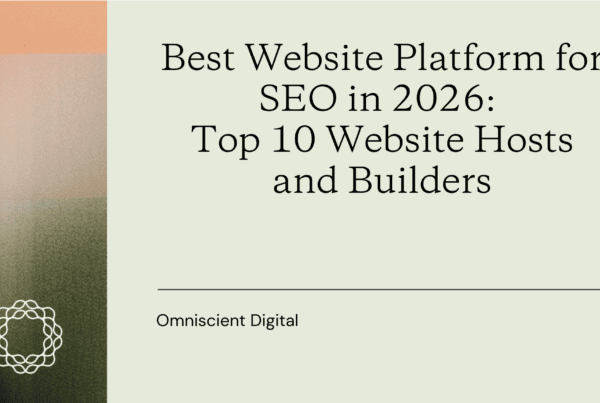
When I was 23 years old, I sat down at my desk for my first day of work.
I had just accepted a job at CXL. The views from the WeWork in downtown Austin were immaculate.
Peep Laja had set me up with a laptop, access to all necessary tools, and a rundown on what had been done previously and what expectations were for the next few months.
And then, he left.
“I’ll see you in three months. I spend the summers in Estonia.”
Alright, then!
If you’ve followed me for a while, you may have read my writing on experimentation, bandit algorithms, bayesian statistics, and A/B testing strategy. You’ve definitely heard me quote Nassim Taleb.
At 23, I didn’t know any of that stuff. I was less than one year into my career, and functionally, I could barely run an A/B test, let alone educate practitioners through the biggest blog and platform in the space.
Luckily, what I lacked in experience I made up for with a voracious appetite for learning and a paradoxical blend of confidence and insecurity that led me to reach out to every expert in the industry who would talk to me. I picked up every book related to conversion rate optimization and read them fully, taking notes – books like Thinking Fast and Slow, Don’t Make Me Think, even textbooks like Statistics for Experimenters.
Importantly, I stepped into the arena and started running A/B tests, conducting surveys, dipping my toes into the practice, eventually becoming an experimentation leader at a Series E startup years later.
What’s this have to do with generative AI?
Essentially, I know what it means to actually be behind, and also what it takes to catch up.
And I can tell you something relieving from firsthand experience, 24 structured interviews with marketing leaders, weekly conversations with our several dozen clients as well as our team, and many “backroom” conversations at meetups, conferences, and coffees:
When it comes to AI, you’re probably not as behind as you think you are.
But you should still lean in, as in today, and learn as much as you can.
Let’s talk about it.
Social Media Isn’t Real Life
Recently, I attended Spryng — a B2B marketing conference that convened some of the sharpest operators from the fastest-growing SaaS brands.
The conference itself is made up mostly of table moderated discussions, with a handful of keynotes sprinkled between. Most conversations eventually veered into a question: “So…how are you using AI right now?”
If you live too much online, you might expect these conversations to sound like parody:
“We replaced the SDR team with agents. Our entire content engine runs unsupervised. I’m basically retired. In fact, I’m only at this conference because I’m so bored and rich that I thought I’d come back and share some of my learnings on invoking superintelligence for B2B marketing”
But that wasn’t what I heard.
Instead, I heard a lot of…normal.
Some folks were using AI notetakers. Some were summarizing sales calls, uploading to NotebookLM to speed up qualitative analysis. Some were repurposing blog content into LinkedIn posts or cleaning up internal memos. Some were building micro tools and internal apps for specific use cases.
Basically, the same stuff you’re probably using it for, with some marginal differences based on industry and role context.
At our agency, we’ve built real workflows with AirOps — generating briefs, streamlining keyword research, optimizing UX audits.
I sort of figured everyone was doing this because our main competitors and frenemies are doing the same.
But when we talked about this stuff, the reaction was intrigue. Very few others were doing this stuff.
It was cathartic, because to be completely honest with you, I (and if I can speak for my co-founders as well) often feel like we’re falling behind and missing out.
But having these conversations, outside of the social media spotlight, made me feel calm, and interestingly, much more interested in tinkering and innovating more with AI.
Turns out, the shame-inducing feeling that “you’re behind!” isn’t a great motivator for many.
Why Do We Feel Behind?
Psychologists have had a term for this flavor of anxiety since the 1970s: Impostor Syndrome.
Originally studied by Pauline Clance and Suzanne Imes, it’s a psychological pattern where high-achievers doubt their competence and feel like frauds, despite evidence of their success.
Research suggests Impostor Syndrome affects 9% to 82% of people, depending on the population studied.
In marketing? I’d bet on the higher end.
Because marketers are uniquely exposed to the second culprit: Social Comparison Theory — the idea, proposed by Leon Festinger in 1954, that we evaluate ourselves by comparing ourselves to others.
Online, those “others” aren’t only your coworkers or your industry peers. They’re the most extreme, most advanced, most performatively online operators (or sometimes creators who act like operators) in the world — filtered and curated by algorithms designed to stoke engagement, attention, and scroll stopping. Think: mimetic desire (and competition) on steroids.
What you’re seeing is not a curated selection of your closest peers and prospects, but the most salacious takes due to platform incentives and individual incentives to garner attention.
The Great AI SEO Scramble (aka GEO, AIO, AEO…Whatever)
Take the emerging field of Generative Engine Optimization — optimizing content for LLMs and AI search experiences.
Every day, I see hot takes and half-baked playbooks proliferating online. And for a second, the old anxiety kicks in:
“Wait…are we missing something here?”
But when you dig in?
Most of these tactics are either:
- Things we’ve been doing for years (brand mentions and surround sound SEO, content specificity and expert-centered credibility, customer research triangulated with product and channel data), or
- Total junk science based on spurious correlations and wild extrapolations
Not to mention the tools themselves are changing so rapidly that the “playbook” last year doesn’t resemble the “playbook” this year. It’s the wild west, we’re all tinkering, using a mixture of aggregate data, first party data, heuristics and first principles, and experimentation. Intellectual honesty isn’t prevalent on social media, but it’s probably what you want from your organic growth vendor.
That’s not to say this isn’t an interesting field. It is. It’s probably the most interesting thing to happen in SEO in my lifetime, and I’m spending the vast majority of my time working on various angles of it, from attribution, to strategic inputs and research, to altering our approach to deliverables to better fit emerging organic surface areas like ChatGPT search and Perplexity.
But I’m not going to ask you to comment “give me that template!” on a LinkedIn post promising the silver bullet secrets.
You’re Probably Not Behind — You’re Just Online Too Much
I want to be clear: this isn’t an excuse for stagnation.
Tobi’s memo at Shopify is right. AI will change the way we work. The best marketers are already learning, tinkering, and experimenting at the edges of what’s possible. There’s massive alpha in being both functionally capable and theoretically knowledgeable about these tools.
I’m sure you’ve read the memo already. If not, do so. The most important line, I think, is this one:
“Using AI well is a skill that needs to be carefully learned by…using it a lot.”
The call to arms here is to a) calm down and start to simply ignore hyperbolic takes and b) learn by doing, lean in hard, and know that you’re probably on the cutting edge like everyone else who is taking this path.
Honestly, have some fun with it.
We have an internal Slack channel where we collectively share cool workflows, Custom GPTs, use cases with the team. I went to a dinner the other night, and we all shared the coolest thing we recently did with AI (mine was a fitness coach that actually visualized what I would look like if I followed the plan for 12 weeks. Talk about motivation!).
I highly recommend, if possible, grabbing a coffee or joining a meetup and talking to your peers informally about what’s going on in the space. Higher signal of information.
This should be fun.
Want more insights like this? Subscribe to our Field Notes.


